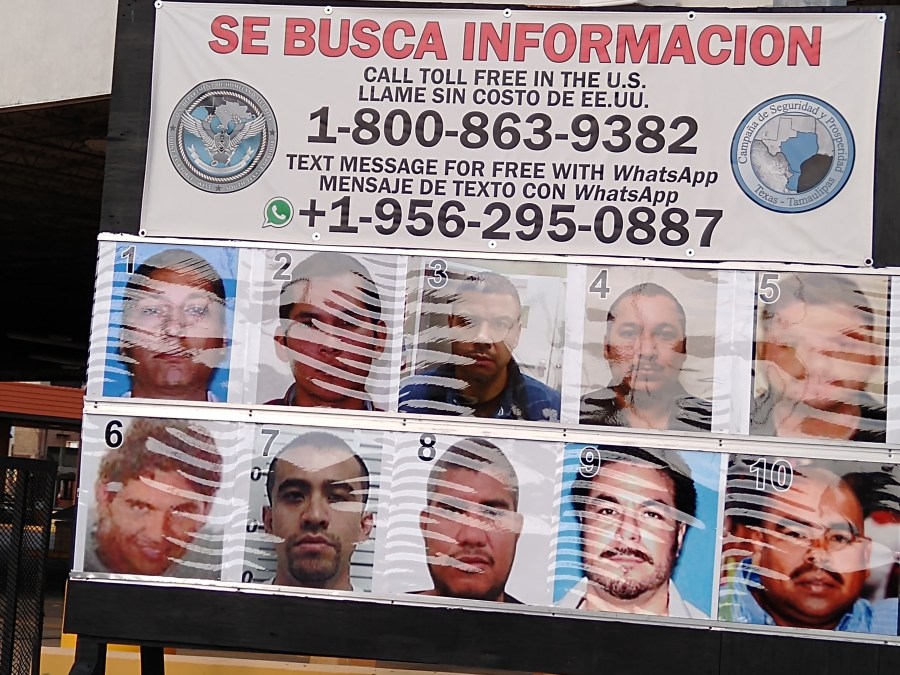HIDALGO, Texas (Border Report) — For the past year, U.S. authorities and the government of Tamaulipas, Mexico, have been hunting criminals together, and the partnership has paid off.
Seven of 10 men wanted for criminal offenses ranging from murder to drug trafficking have been captured thanks to tips phoned in by residents on both sides of the U.S.-Mexico border and vetted by Department of Homeland Security employees.
On Tuesday, officials unveiled the continuation of the campaign, which involves placing billboards near ports of entry with the faces of another 10 wanted criminals. The billboard includes a toll-free telephone number (1-800-863-9382) to leave anonymous tips as well as the number (1-956-295-0887) to a closed WhatsApp group. The “Se Busca Informacion” (Information Sought) campaign is also being promoted on social media.
“Our intent is to leverage the resources and capabilities of the U.S. and Mexican governments, our businesses and members of the public to combat the criminal element that threatens the safety of residents on both sides,” said Border Patrol Deputy Chief Agent Austin L. Skero. The new targets are known to travel and conduct criminal activities on both sides of the border.
During its first year, the program received 310 calls, which not only contributed to finding the seven fugitives but also yield clues to other possible crimes. In addition, U.S. officials and some Mexican governors are talking about the possibility of expanding the binational hunt for criminals all the way from Brownsville-Matamoros to San Diego-Tijuana.
Federal officials in the Rio Grande Valley of Texas said they already partner with Mexico in joint trade operations. Mexican customs agents jointly inspect cargo trucks at the World Trade Bridge, so the law enforcement partnership makes sense, U.S. officials said.
“We want to see the commerce come through our ports of entry. At the same time, there are some things that cross that we do not want,” said U.S. Rep. Henry Cuellar, D-Texas. “This is why this program is so important … we are working on both sides of the border” toward that goal, he said.

Cuellar added that he’ll spread the word in Washington, D.C., about the strong binational cooperation in South Texas to get more support. For instance, the United States could do more to stop shipments of guns and cash into Mexico, he said.
“The criminals don’t have to wait approval from some bureaucrats to do things, they just go ahead and do them,” he said. “We have to be nimble, we have to be flexible” to counter the criminal threat on the border.

The binational criminal hunt so far is unique to the Rio Grande Valley and the state of Tamaulipas, and the governor of that Mexican state says all it takes to expand it is political will. Police officers in his state caught six of the seven “Most Wanted” fugitives.
“Some people are asking if there’s a possibility to expand this across all of our shared border and I think it can be done as long as the political will exists. I spoke today with the governor of Coahuila and two months ago with the governor of Chihuahua who have expressed interest in the program,” said Tamaulipas Gov. Francisco Javier Garcia Cabeza de Vaca.
Visit the BorderReport.com homepage for the latest exclusive stories and breaking news about issues along the United States-Mexico border










